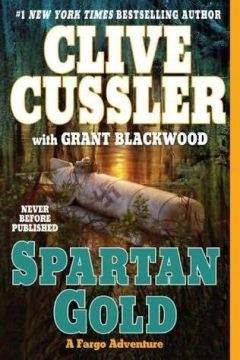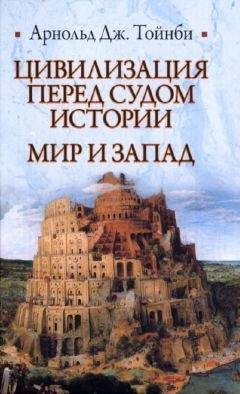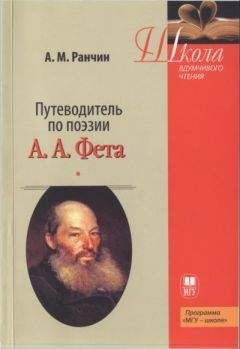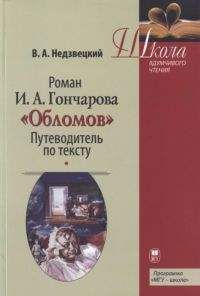Or, Bondaruk thought, God not help them. No matter. Storms and disease and yes, even war, were nature’s way of culling the herd. He had little patience for people who didn’t have the sense or strength to protect themselves against the violence of life. It was a lesson he’d learned as a boy, and one that he’d never forgotten.
Bondaruk had been born in 1960 in a village south of Ashgabat, Turkmenistan, high in the Kopet Dag Mountains. His mother and father and their parents before them had been farmers and shepherds living in that gray geographic area between Iran and what was then the Soviet Union, and like all natives of the Kopet Dag they were tough, self-reliant, and fiercely independent, claiming neither country as their own. However, the Cold War had other plans for Bondaruk and his family.
With the Iranian Revolution of 1979 and the deposition of the Shah, the Soviet Union began to pour more troops into the border area north of Iran, and Bondaruk, then nineteen, saw his village’s independence stripped away as Red Army bases and antiaircraft missile sites began cropping up in their once peaceful mountain home.
The Soviet troops treated the Kopet Dag natives like backward savages, moving through villages like a scourge, taking food and women, shooting livestock for sport, and rounding up “Iranian revolutionary elements” for summary execution. Never mind that Bondaruk and his people knew little of the outside world and world politics. Their Muslim religion and proximity to Iran made them suspect.
A year later a pair of tanks appeared on the outskirts of the village, along with two companies of Red Army soldiers. A squad of soldiers had been ambushed nearby the night before, the commander told Bondaruk and the villagers. Eight men, their throats slit and their clothes, weapons, and personal belongings stripped from them. The village elders had five minutes to produce those responsible, lest the entire community be held responsible.
Bondaruk had heard stories about Turkmen resistance fighters in the countryside being aided by Iranian commandos but to his knowledge none of the villagers were involved. Unable to produce the guilty parties, the village chieftain pleaded with the Soviet commander for mercy and was shot for his trouble. Over the next hour the tanks rained shells down on the village until it was in ruins and burning. In the commotion, Bondaruk was separated from his family and he and a handful of boys and men retreated higher into the mountains, far enough away to be safe from the soldiers, but close enough that they could watch through the night as their home was razed to the ground. The next day they returned to the village and began looking for survivors. More dead than alive were found, including Bondaruk’s family, who had taken shelter in the mosque only to have it collapse and crush them alive.
Something inside him changed, as though God had pulled a dark curtain on his old life. He gathered up the strongest and most eager villagers, men and women alike, and they all took to the mountains as partisans.
Within six months Bondaruk had risen not only to a position of leadership among his fighters, but also to that of a legend among the rural Turkmen people. Bondaruk’s fighters would strike in the night, ambushing Soviet patrols and convoys, then disappear back into the Kopet Dag like ghosts. Within a year of his village’s destruction, Bondaruk had a bounty on his head. He’d come to the attention of the Soviet leadership in Moscow, which was now embroiled in not only a tense standoff with Iran and a full-blown war in Afghanistan but also a guerrilla conflict in Turkmenistan.
Shortly after his twenty-first birthday Bondaruk received word that Iranian intelligence operatives had put out the word that his Kopet Dag fighters had an ally in Tehran, if only he would sit down and listen, which he did in a small café outside Ashgabat.
The man Bondaruk met turned out to be a colonel in the elite Iranian paramilitary organization known as the Pasdaran, or the Guardians of the Revolution. The colonel offered Bondaruk and his fighters weapons, ammunition, training, and essential supplies for his war against the Soviets. Wary, Bondaruk had probed for a loophole in the deal—that one condition that would simply change the heel on their necks from that of the Soviets to the Iranians. There was no condition, he was assured. We are of common ancestry and faith and cause. What more of a bond did they need? Bondaruk accepted the offer and over the next five years Bondaruk and his fighters, under the guidance of the Iranian colonel, slowly wore down the Soviet occupiers.
As satisfying as that was for Bondaruk, it was his relationship with the colonel that had the most effect on him. The colonel, it seemed, had been a teacher of Persian history before he’d been called to serve the revolution. The Persian Empire, he explained, stretched back nearly three thousand years and at its height had encompassed the Caspian and Black Sea basins, Greece, North Africa, and much of the Middle East. In fact, Bondaruk was told, Xerxes I, Xerxes the Great, who had invaded Greece and crushed the Spartans at the Battle of Thermopylae, was born in the very same mountains Bondaruk called home and was said to have fathered dozens of children in the Kopet Dag.
This was a thought that was never far from Bondaruk’s mind as he and his guerrillas continued to harass the Soviets until finally, in 1990, over a decade after they’d entered the Kopet Dag, the Red Army withdrew from the border. Shortly after that the Soviet Union collapsed.
With the fight over and no inclination to go back to being an ordinary shepherd, Bondaruk, aided by his Iranian colonel friend, moved to Sevastopol, which had, with the collapse of the Soviet empire, become the Wild West of the Black Sea Basin. Once there, his natural leadership ability and comfort with brutality and swift violence secured him a place first in the Ukrainian black market and then in the Ukrainian Krasnaya Mafiya, or Red Mafia. By the time he was thirty-five, Hadeon Bondaruk was in control of virtually every organized criminal enterprise in Ukraine and a millionaire many times over.
With his position and power and wealth secure, Bondaruk turned his attention to an idea that had been lingering in the back of his mind for many years: Had Xerxes the Great truly been born and raised in the Kopet Dag Mountains, in his very homeland? Had he and Xerxes, as boys separated by centuries, walked the same paths and marveled at the same mountain vistas? Could he himself be descended from Persian royalty?
The answer did not come easily, taking five years, millions of dollars, and a dedicated staff of historians, archaeologists, and genealogists, but by the time he turned forty Hadeon Bondaruk was sure of it: He was, in fact, a direct blood descendant of Xerxes I, ruler of the Persian Achaemenid Empire.
From there Bondaruk’s curiosity quickly grew into an obsession with everything Persian; he used the full force of his wealth and influence to assemble a collection of Persian artifacts, from the drinking cup used at the wedding celebration of Cyaxares to a stone dais used for Zoroastrian rituals during the Sassanid Dynasty to the jewel-encrusted gerron shield carried by Xerxes himself at Thermopylae.
And his collection was nearly complete. Save one glaring omission, he reminded himself. His personal museum, which lay in the bowels of his mansion, was a marvel he shared with no one, partially because no one was worthy of its glory, but mostly because it was not yet complete.
Yet, he now thought. Soon he would remedy the issue.
As if on cue the door to his study opened and his valet entered. “Pardon me, sir.”
Bondaruk turned. “What is it?”
“A call for you. Mr. Arkhipov.”
“Send it through.”
The valet left, gently closing the door behind him. A few moments later the phone on Bondaruk’s desk trilled. He picked it up. “Tell me you are calling me with good news, Grigoriy.”
“I am, sir. According to my sources, the man runs an antique shop in the area. The website where he posted the picture is a well-established forum for antique dealers and treasure hunters.”
“And has anyone shown any interest in the shard?”
“Some, but nothing serious. So far the consensus is that it’s simply a broken piece of bottle, nothing more.”
“Good. Where are you?”
“New York, waiting to board my flight.”
At this Bondaruk smiled. “Always taking the initiative. I like that.”
“It’s why you pay me,” the Russian answered.
“And if you manage to secure this piece there’ll be a bonus in it for you. How do you plan to approach the man, this antique dealer?”
The Russian paused for a moment and Bondaruk could almost see that familiar cruel smile curling Arkhipov’s lips.
“I find the direct approach is always best, don’t you?”
Arkhipov knew about directness and results, Bondaruk thought. The former Russian Spetsnaz was smart, ruthless, and relentless. In his twelve years in Bondaruk’s employ, Arkhipov had never failed in a mission, no matter how dirty.
“I do,” Bondaruk replied. “I’ll leave you to it, then. Just take care that you’re discreet.”
“I always am.”
Which was true. Many, many of Bondaruk’s enemies had, as far as the authorities could determine, simply vanished from the face of the earth.
“Call me as soon as you have word.”
“I will.”
Bondaruk was about to hang up when another question popped into his head. “Just out of curiosity, Grigoriy, where is this man’s shop? Anywhere close to where we’d predicted?”
“Very close. A small town called Princess Anne.”
CHAPTER 3
SNOW HILL, MARYLAND
Sam Fargo stood at the bottom of the stairs, leaning against the banister, legs crossed at the ankles and arms folded across his chest. Remi was running late as usual, having decided at the last minute her black Donna Karan dress was going to be a bit much for the restaurant and returned to their room to change clothes. Sam checked his watch again; he wasn’t so much worried about their reservation as he was about his empty belly, which had been grumbling loudly ever since they’d gotten back to the B&B.
The lobby of the hostel was quaint almost to a fault, done in Americana shabby chic and decorated with landscape watercolors done by local artists. A fire crackled in the fireplace and over hidden loudspeakers came the faint strains of Celtic folk music.
Sam heard the stairs creak once and looked up in time to see Remi coming down the stairs in a pair of cream Ralph Lauren trousers, a cashmere mock turtleneck, and a russet-colored shawl draped over her shoulders. Her auburn hair was up in a loose ponytail, a few strands touching her delicate neck.
“I’m sorry, have I made us late?” she asked, taking his offered arm as she reached the bottom of the stairs.
Sam stared at her for a few seconds without replying, then cleared his throat. “Looking at you, I fear time has come to a standstill.”
“Oh, shut up.”
The squeeze on Sam’s biceps belied her words and told him that, corny line or not, his compliment had been appreciated.
“Are we walking or driving?” she asked.
“We’ll walk. It’s a beautiful night.”
“Plus you run less risk of another ticket.”
On the way into town Sam had let their rented BMW have a bit too much head, much to the annoyance of the local sheriff, who’d been trying to eat his bologna sandwich lunch behind a roadside billboard.
“That, too,” Sam agreed.
There was a slight spring chill in the air, but not enough to be uncomfortable, and from the bushes along the sidewalk came the croaking of frogs. The restaurant, a locally owned Italian affair complete with a green-and-white-checkered awning, was only two blocks away, and it took only five minutes. Once they were seated they took a few minutes to peruse the wine list, settling on a Bordeaux from the French region of Barsac.
“So,” Remi said, “how sure are you about this?”
“You mean about the you-know-what?” Sam whispered conspir atorially.
“I think you can say the word, Sam. I doubt anyone cares.”
He smiled. “The submarine. I’m pretty sure. We’ll have to get down there, of course, but I can’t imagine it’s anything else.”
“But what’s it doing here? All the way upriver.”
“That’s the mystery we’ll have to solve, won’t we?”
“And what about Patty Cannon?”
“She can wait a couple days. We’ll ID the sub, put Selma and the others onto unraveling the mystery, then get back to our sociopathic murderous slave runner.”
Remi gave it a few moments’ thought, then shrugged. “Why not. Life is short.”
Selma Wondrash was the drill sergeant-like head of Sam and Remi’s three-person research team back in San Diego. Selma was widowed, having lost her husband, an air force test pilot, in a crash ten years earlier. They’d met in Budapest in the early nineties, she a university student, he a fighter jock on leave. Despite having lived in the United States for fifteen years, Selma had never entirely lost her accent.
After finishing her degree at Georgetown and becoming a citizen, she went to work for the Library of Congress’s Special Collections Directorate until Sam and Remi lured her away. More than a research chief, Selma had proved herself a superb travel agent and logistics guru, getting them to and from destinations with military efficiency.
While Sam and Remi loved the research aspect of their field, Selma and her team were rabid about it, living for that buried fact, that elusive lead, that unsolvable riddle that always seemed to crop up in the course of a job. More times than they could count, Selma and her team had kept an investigation from going far astray.
Of course, “job” wasn’t quite the right word for what Sam and Remi did. For them it wasn’t about a paycheck but rather the adventure, and the satisfaction of seeing the Fargo Foundation flourish. The foundation, which split its gifting between animal protection, nature conservancy, and underprivileged and abused children, had grown in leaps and bounds over the last decade, the previous year donating almost five million dollars to a variety of organizations. A hefty part of that money had come from Sam and Remi personally and the rest of it from private donations. For better or worse their exploits attracted a fair amount of media attention, which in turn attracted wealthy, high-profile donors.
The fact that Sam and Remi got to do what they loved was a boon neither of them took for granted, having both worked hard to reach this place in their life.
Remi’s father, now retired, had been a private contractor who’d built custom summer homes along the New England coast; her mother, a pediatrician with a series of bestselling child-rearing books. Following in her father’s footsteps, Remi had attended his alma mater, Boston College, emerging with a master’s in anthropology and history, with a focus on ancient trade routes.





